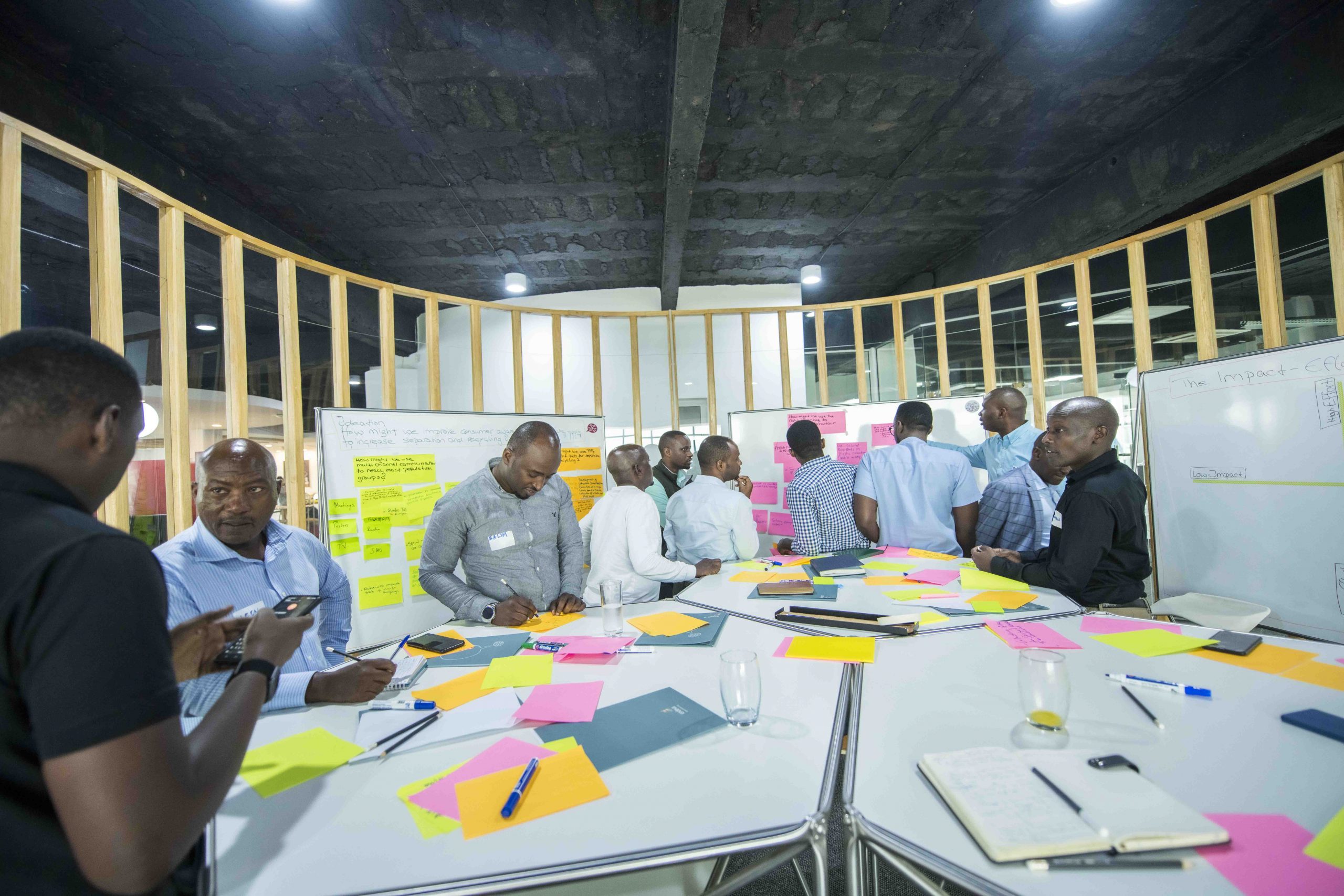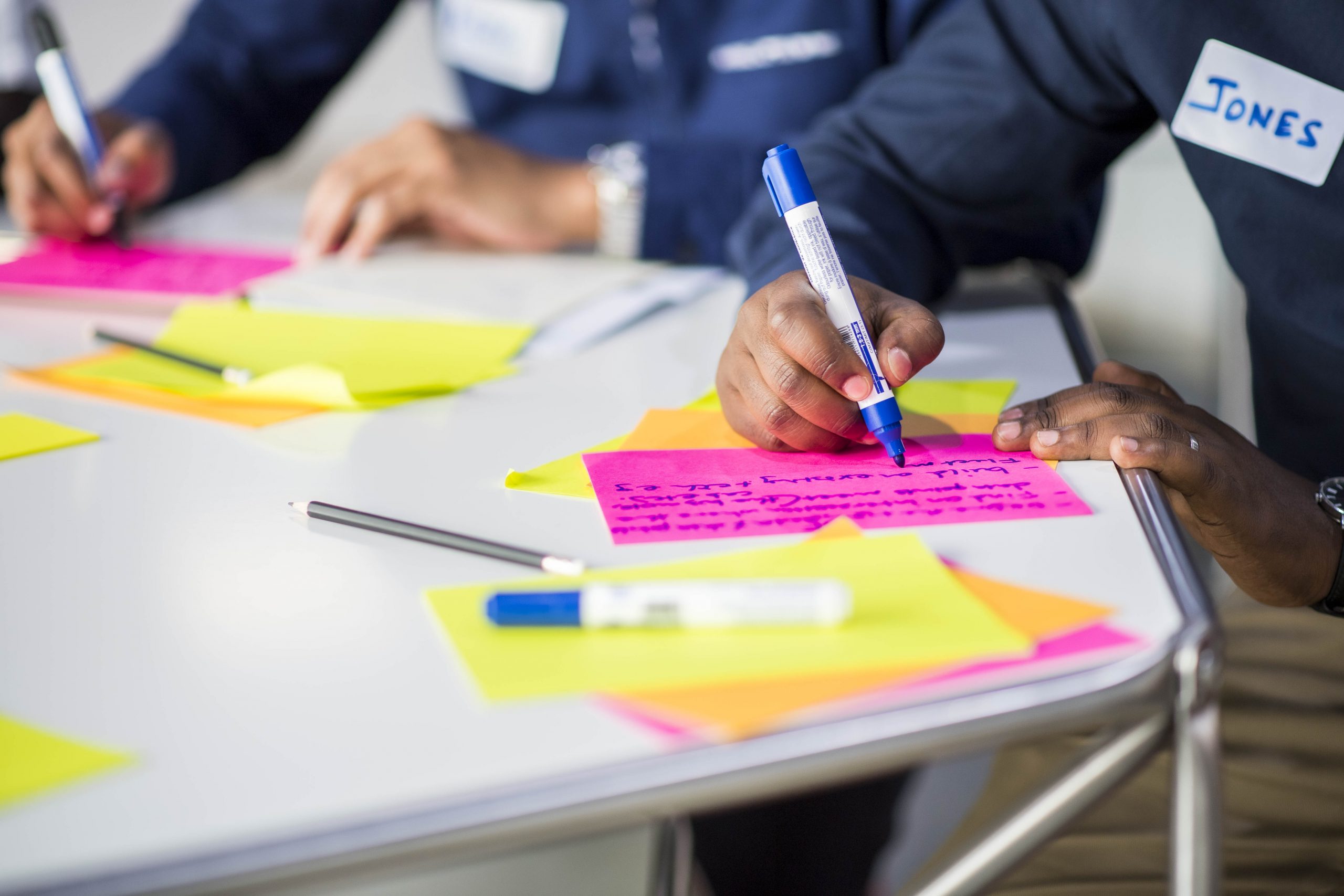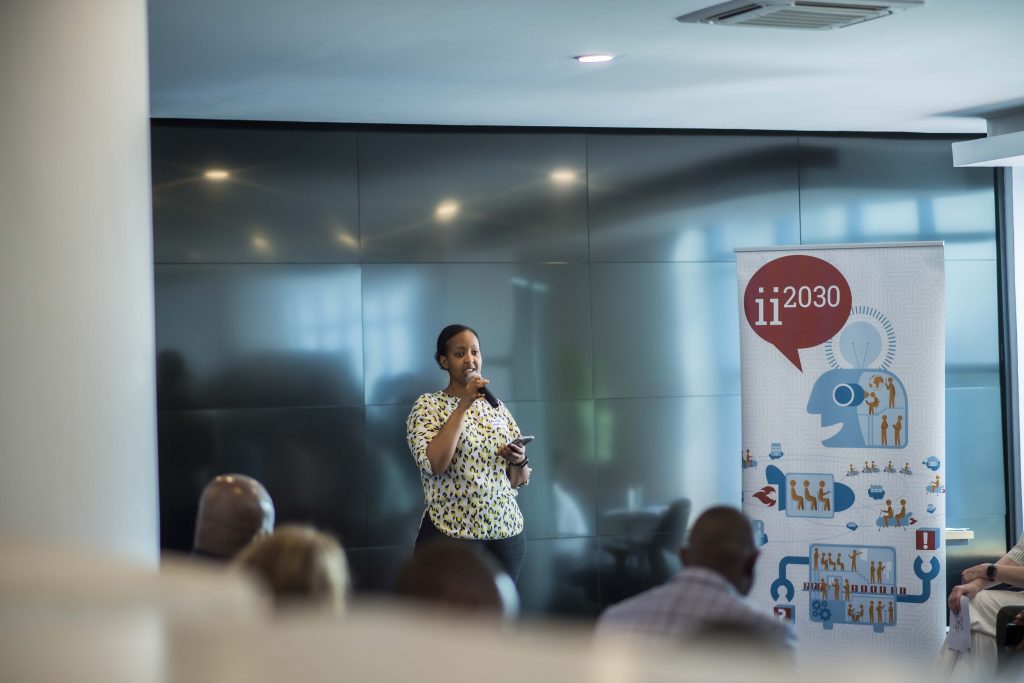During the last week of May, the Endeva team facilitated the co-creation phase of the ii2030 Rwanda Smart City Edition in Kigali. In an interactive two-day workshop key stakeholders came together to create the prototypes of a plastic waste recycling app, a database for road safety and a virtual centre for promoting clean air technologies. The workshop was held at the Kigali Digital Transformation Centre with a total of 31 organizations represented by 38 participants.
 The co-creation had three parallel co-creation sessions across the tracks of Road Safety, Solid Waste Management and Clean Air.
The co-creation had three parallel co-creation sessions across the tracks of Road Safety, Solid Waste Management and Clean Air.
The Road Safety Track developed a Coordinated and Smart Road Safety (CSRS) database providing quick and centralized access to actionable road safety information. It pulls together and makes available existing road safety anonymized data (i.e. road crashes statistics, causes, geo-referenced data, etc) which was previously siloed. The CSRS platform promotes evidence-based and proactive interventions to make roads safer in Rwandan smart cities.
The Solid Waste Management track designed a smart waste and recycling mobile application. It supports the planned PET bottle deposit & return system. The app communicates, educates, rewards and even entertains Kigali’s citizens while informing them on how and where to dispose of their solid waste. The app would first focus on PET waste, proceed to cover other types of plastic and later get extended to other solid waste products such as e-waste.
The Clean Air track’s solution “Clair” show cases innovative business models and technologies that help to reduce the traffic-related pollution. This center will collect examples of innovations around clean air like e-vehicles (EV) and shared bikes, it will process the information for example in short videos or virtual reality showrooms and will disseminated the information about the solutions. It aims to increase and share knowledge with city planners, policy makers and investors.

The ii2030 Rwanda Smart City Edition is an eleven-month-long process that began in November 2021. It is made up of four stages. The first phase, inception, utilized desk research and interviews to systematically identify and prioritize potential focus areas. The second phase, consultation, entertained two online workshops for problem and opportunity identification. At the third stage, relevant stakeholder co-created solutions to a specific systemic problem. In the upcoming fourth stage, Endeva will support the development of the concept notes and business plans to ensure the implementation of the co-created solutions.
More information on www.ii2030.com.


